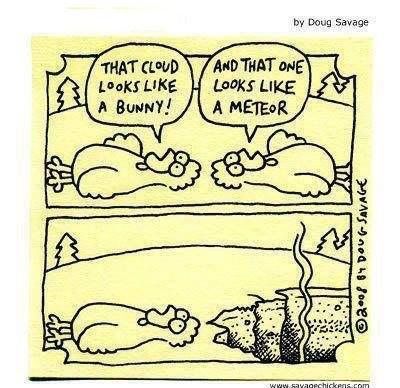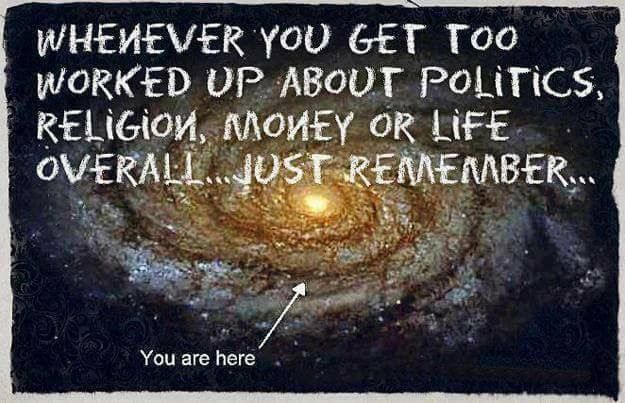Conversations with a Fundamentalist Christian: Part 4
Heaven and Hell
Introduction: The Oldest Carrot and Stick
From Sunday school to fiery revivals, Christianity leans on two great motivators: eternal reward in heaven and eternal punishment in hell. Believe and you will bask forever in paradise. Doubt, and you risk eternal torment. The ledger is eternal, the stakes infinite.
But behind the emotional pull lies a problem: the promises of heaven and threats of hell collapse under scrutiny. They are inconsistent, unjust, and manipulative. They excuse evil by deferring justice to the afterlife, while simultaneously terrorizing people into obedience.
This installment of Conversations with a Fundamentalist Christian tackles heaven and hell — the cosmic carrot and stick at the heart of fundamentalist faith.
The Conversation
Christian: At least heaven will make it all worth it. Every tear will be wiped away.
Me: That’s the oldest IOU in history. Justice delayed is justice denied. If an earthly judge told a grieving family, “Don’t worry, I’ll punish your daughter’s murderer after you all die,” we’d call that fraud. Yet you expect me to applaud when God runs justice on a cosmic layaway plan?
Christian: But eternity in heaven outweighs the pain of this life. Infinite bliss cancels finite suffering.
Me: No paradise can undo the tears of even one tortured child. Dostoevsky was right — that calculation is obscene. You can’t balance atrocity with reward. Heaven doesn’t erase suffering; it cheapens it by pretending it was all worth it.
Christian: Without God, there’s no justice at all. Hitler, Stalin, murderers — they’d all just get away with it.
Me: Wrong. Real justice is what we demand and create here. When you outsource justice to an invisible courtroom beyond the grave, you excuse atrocities instead of stopping them. Saying “God will deal with it later” is moral laziness. If humanity is waiting on heaven to balance the books, the books will never balance.
Heaven: Paradise or Political Tool?
A Comforting Fantasy
Heaven is marketed as perfect justice: the righteous rewarded, suffering redeemed, tears wiped away. It is the ultimate consolation prize.
But the very idea trivializes suffering. If heaven erases pain, then atrocities become tolerable because they are supposedly temporary. The Holocaust? Just a test. Child abuse? Just a trial. This framing absolves institutions from addressing evil in real time.
Heaven as Control
Historically, heaven has been less about comfort and more about control. Medieval peasants were told to endure misery because paradise awaited. Slaveholders assured the enslaved that obedience would be rewarded in heaven. The message was clear: accept injustice now, your reward is coming later.
Karl Marx called religion the “opiate of the masses” for good reason. Heaven numbed the oppressed into docility while empowering the rulers who promised it.
Hell: Eternal Torture in the Name of Love
The Injustice of Infinite Punishment
Hell is eternal punishment for finite crimes. Think of it: a human sins for seventy years and receives eternal torment. No just system on earth would impose such disproportionate penalties.
Philosopher David Hume (1779/1998) argued that no crime could merit eternal punishment, and no finite being deserves infinite torment. If God designed such a system, it reflects cruelty, not justice.
The Manipulation of Fear
Hell is not about morality; it is about fear. From Dante’s Inferno to Jonathan Edwards’ sermon Sinners in the Hands of an Angry God (1741), hellfire preaching has been a tool to terrify congregations into obedience. The psychology is simple: keep people terrified, and they will cling to the institution that claims to hold the key to escape.
The Contradiction of Love
Fundamentalists insist that God is love, yet this God supposedly consigns most of humanity to eternal torture. As Bertrand Russell noted in Why I Am Not a Christian (1927), if a human parent treated their children this way, we would call them monstrous. To worship such a deity is to glorify cruelty.
Biblical Contradictions
Heaven’s Ambiguity
The Bible itself offers little clarity on heaven. Is it a restored Earth (Revelation 21)? A spiritual dimension (John 14)? A throne room of eternal worship (Isaiah 6)? The contradictions suggest less divine revelation and more human imagination.
Hell’s Evolution
The Old Testament contains no eternal hell. Sheol was simply the grave. The concept of eternal torment developed later, influenced by Persian Zoroastrianism and Greek thought. Jesus spoke of Gehenna — a burning garbage dump outside Jerusalem — but modern fundamentalists inflated it into a cosmic torture chamber.
Hell, far from being eternal truth, is a cultural invention that evolved over centuries.
Philosophical Critiques
Dostoevsky’s Objection
In The Brothers Karamazov, Ivan rejects heaven purchased at the price of a child’s suffering: “I hasten to return my ticket.” No paradise can justify atrocities.
Camus’ Rebellion
Albert Camus rejected both heaven and hell. In The Myth of Sisyphus (1942), he argued that life is absurd, and meaning must be created by humans, not imposed by divine reward or punishment.
William Lane Craig’s Contortions
Modern apologists like Craig defend hell by appealing to “free choice”: people choose separation from God. Yet this ignores the fact that most humans are born into cultures where Christianity is not dominant. If eternal torture hinges on birthplace, then God’s justice is indistinguishable from lottery odds.
The Human Cost of Heaven and Hell
- Excusing Atrocities: By deferring justice to the afterlife, heaven and hell numb believers to real injustice.
- Psychological Terror: Fear of hell traumatizes children raised in fundamentalist homes, often leading to anxiety, depression, or lifelong guilt (Exline & Rose, 2005).
- Moral Evasion: Believers outsource responsibility, trusting God to punish or reward instead of acting themselves.
The result is a moral vacuum where evil flourishes while heaven and hell remain theoretical accounting systems.
Alternatives Without Heaven and Hell
A world without divine bookkeeping is not a world without morality. In fact, it may be a world with greater morality. Without the promise of heaven or threat of hell, people must choose good because it is good — not because of cosmic bribery or blackmail.
Secular ethics — from Kant’s categorical imperative to utilitarianism — offer robust frameworks for justice without eternal carrots and sticks.
Conclusion: Tear Up the Cosmic Ledger
Heaven and hell are the twin pillars of a cosmic accounting system that never balances. Heaven trivializes suffering by pretending it was “worth it.” Hell terrorizes the vulnerable into obedience. Together, they excuse atrocity, manipulate fear, and erode human responsibility.
The fundamentalist clings to them because without them, the faith collapses. But perhaps collapse is necessary. Humanity does not need celestial carrots and sticks. It needs courage, honesty, and responsibility.
Justice delayed is justice denied. Meaning deferred is meaning lost. The only heaven worth seeking is the one we build here. The only hell worth fearing is the one we allow by doing nothing.
Why This Matters
By confronting the fraud of heaven and hell, we strip away illusions that keep people docile, fearful, or complacent. This matters not only for theology but for politics and culture. A society hypnotized by eternal rewards and punishments abdicates responsibility in the present. A society freed from these illusions accepts responsibility.
Heaven and hell will not save us. Only we can.
References
Camus, A. (1942/1991). The Myth of Sisyphus. New York: Vintage International.
Dostoevsky, F. (1880/1990). The Brothers Karamazov. New York: Vintage Classics.
Edwards, J. (1741/2018). Sinners in the Hands of an Angry God. Whitaker House.
Exline, J., & Rose, E. (2005). “Religious and Spiritual Struggles.” Handbook of the Psychology of Religion and Spirituality. Guilford Press.
Hume, D. (1779/1998). Dialogues Concerning Natural Religion. Oxford University Press.
Marx, K. (1843/1970). Critique of Hegel’s Philosophy of Right. Cambridge University Press.
Russell, B. (1927/2004). Why I Am Not a Christian. Routledge.
Disclaimer
The views expressed in this post are opinions of the author for educational and commentary purposes only. They are not statements of fact about any individual or organization, and should not be construed as legal, medical, or financial advice. References to public figures and institutions are based on publicly available sources cited in the article. Any resemblance beyond these references is coincidental.












